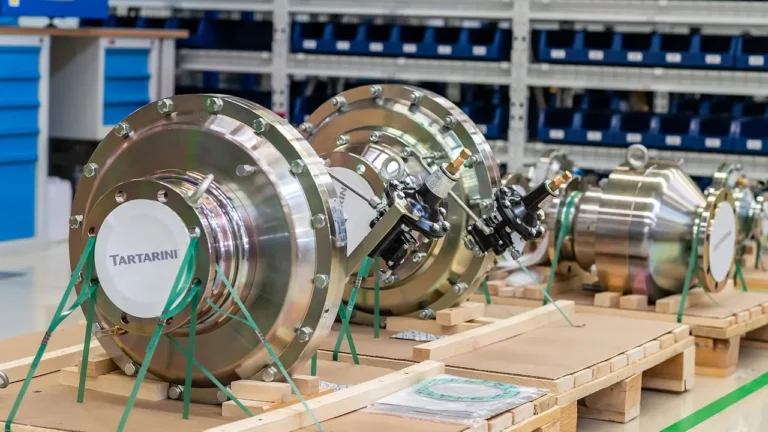
Wistron Corp. Reports Strong Q3 Financial Results and Announces Strategic Investments
Wistron Corporation, a leading global technology solutions provider, convened a meeting of its Board of Directors today to review the company’s financial performance for the first three quarters of the fiscal year ending September 30, 2025. Following the meeting, the company released its detailed financial results and outlined several strategic initiatives aimed at strengthening its operational capabilities, expanding its AI server business, and enhancing infrastructure across key facilities.
Robust Financial Performance for the First Three Quarters
For the period spanning January to September 2025, Wistron reported total revenue of NT$1,465,582 million, reflecting steady growth driven by strong demand across multiple product segments and geographic markets. The company’s operating income during this period reached NT$53,080 million, demonstrating operational efficiency and the effectiveness of cost management strategies. Profit before tax (PBT) was recorded at NT$54,988 million, while profit after tax (PAT) totaled NT$19,242 million, translating to an earnings per share (EPS) of NT$6.43.
The third quarter of fiscal year 2025 alone showcased a strong performance, with Wistron generating revenue of NT$567,805 million. Operating income for Q3 amounted to NT$27,142 million, while PBT stood at NT$22,038 million. Net profit, or PAT, was NT$7,406 million, corresponding to an EPS of NT$2.36. These figures highlight the company’s continued ability to maintain profitability amid a dynamic global technology market, as well as the resilience of its business model and diversified revenue streams.
Strategic Investments to Support Growth and Expansion
In addition to reporting its financial results, Wistron announced several significant initiatives aimed at supporting long-term growth, particularly in its AI server business, corporate infrastructure, and workforce facilities.
1. Expansion of Zhubei AI Plant II
Wistron plans to undertake major building improvements and procure advanced machinery and equipment for its Zhubei AI Plant II. This initiative is part of the company’s strategic push to strengthen its presence in the AI server sector, which has seen rapidly growing global demand. The total planned investment for this expansion is up to NT$5.28 billion. This substantial investment will enhance the company’s manufacturing capabilities, improve production efficiency, and position Wistron to capture emerging opportunities in the AI and high-performance computing markets.
The Zhubei AI Plant II is expected to serve as a hub for innovation, integrating state-of-the-art production technologies with smart factory solutions. By expanding this facility, Wistron aims to meet increasing orders from major technology clients while simultaneously ensuring flexibility in production processes to adapt to evolving market requirements.
2. Upgrades to Taipei Digital Studio (TDS) at Neihu Headquarters
Wistron Corporation and its wholly owned subsidiary, WiSuccess Asset Management Corporation, have announced plans to increase capital expenditure budgets for the company’s new Neihu headquarters, the Taipei Digital Studio (TDS). Initially budgeted at NT$1.03 billion and NT$4.78 billion, the capital allocations will now rise to NT$1.71 billion and NT$5.6 billion, respectively.
These upgrades reflect Wistron’s commitment to building a modern, state-of-the-art corporate headquarters that integrates digital technologies, sustainable infrastructure, and advanced workspace solutions. The expansion of TDS is designed to foster innovation, enhance collaboration among employees, and support the company’s research and development initiatives. Moreover, these investments will contribute to the company’s long-term strategic objectives by improving operational efficiency and supporting the development of next-generation technology products.
3. Investment in Malaysian Subsidiaries and Employee Infrastructure
Wistron Technology (Malaysia) Sdn. Bhd. (WMMY), a wholly owned subsidiary of Wistron, announced plans to inject up to USD 30 million (not exceeding MYR 126.10 million) into its subsidiary, Wistron Investment (Malaysia) Sdn. Bhd. (WIMY). WIMY, in turn, will allocate up to USD 28.31 million (not exceeding MYR 118.98 million) for the construction of employee dormitories and a substation.
This investment demonstrates Wistron’s focus on strengthening its operations in Malaysia, a key manufacturing hub for the company. By improving employee accommodation and utility infrastructure, Wistron aims to enhance workforce welfare, support productivity, and maintain high operational standards across its Malaysian facilities. The construction of the substation will further ensure reliable power supply, a critical factor for uninterrupted manufacturing operations, particularly for high-precision technology production.
Wistron’s financial results and announced investments underscore the company’s proactive approach to growth and long-term sustainability. The focus on AI server expansion, modern corporate facilities, and workforce infrastructure highlights a multi-pronged strategy aimed at maintaining technological leadership while improving operational resilience.
The company’s performance in Q3 2025 reflects not only strong market demand but also disciplined cost management, efficient production processes, and strategic positioning in key growth segments. With total revenue exceeding NT$1.46 trillion for the first three quarters and net profitability sustained at NT$19.2 billion, Wistron continues to demonstrate its capability to deliver consistent financial results, even in a competitive global technology environment.
Furthermore, the capital investments in AI production facilities, corporate headquarters, and Malaysian operations signal Wistron’s commitment to long-term value creation for shareholders. These initiatives are expected to enhance production capacity, support innovation, and provide a solid foundation for future growth in AI servers, digital solutions, and advanced technology products.
Commitment to Innovation and Employee Welfare
Beyond financial performance, Wistron emphasizes innovation and employee welfare as integral components of its growth strategy. The investments in AI plant infrastructure and TDS reflect a forward-looking approach to technology development and digital transformation. Meanwhile, the construction of employee dormitories and essential infrastructure in Malaysia underscores the company’s dedication to creating a supportive and productive work environment.
These initiatives are aligned with Wistron’s broader vision of sustainable growth, operational excellence, and corporate responsibility. By investing in both technological capabilities and workforce support, Wistron positions itself to capitalize on emerging opportunities in AI, cloud computing, and high-tech manufacturing, while maintaining a competitive edge in the global technology market.
Wistron Corporation’s Q3 2025 financial results highlight a period of strong revenue growth, operational efficiency, and sustained profitability. With total revenue of NT$567,805 million for the third quarter and NT$1,465,582 million for the first three quarters, along with solid operating income and EPS figures, the company continues to demonstrate resilience and strategic focus.
The announced investments—ranging from the expansion of the Zhubei AI Plant II and the Taipei Digital Studio to infrastructure improvements in Malaysia—reflect Wistron’s commitment to growth, innovation, and employee welfare. By strategically allocating resources to key facilities and initiatives, Wistron is well-positioned to strengthen its market presence, drive technological innovation, and deliver long-term value to shareholders.
As the company progresses through the remainder of fiscal year 2025, Wistron remains focused on executing its strategic priorities, expanding its capabilities in high-growth sectors, and fostering a culture of innovation and operational excellence. These combined efforts ensure that Wistron continues to be a leading player in the global technology landscape, equipped to meet the evolving demands of customers, partners, and stakeholders worldwide.




